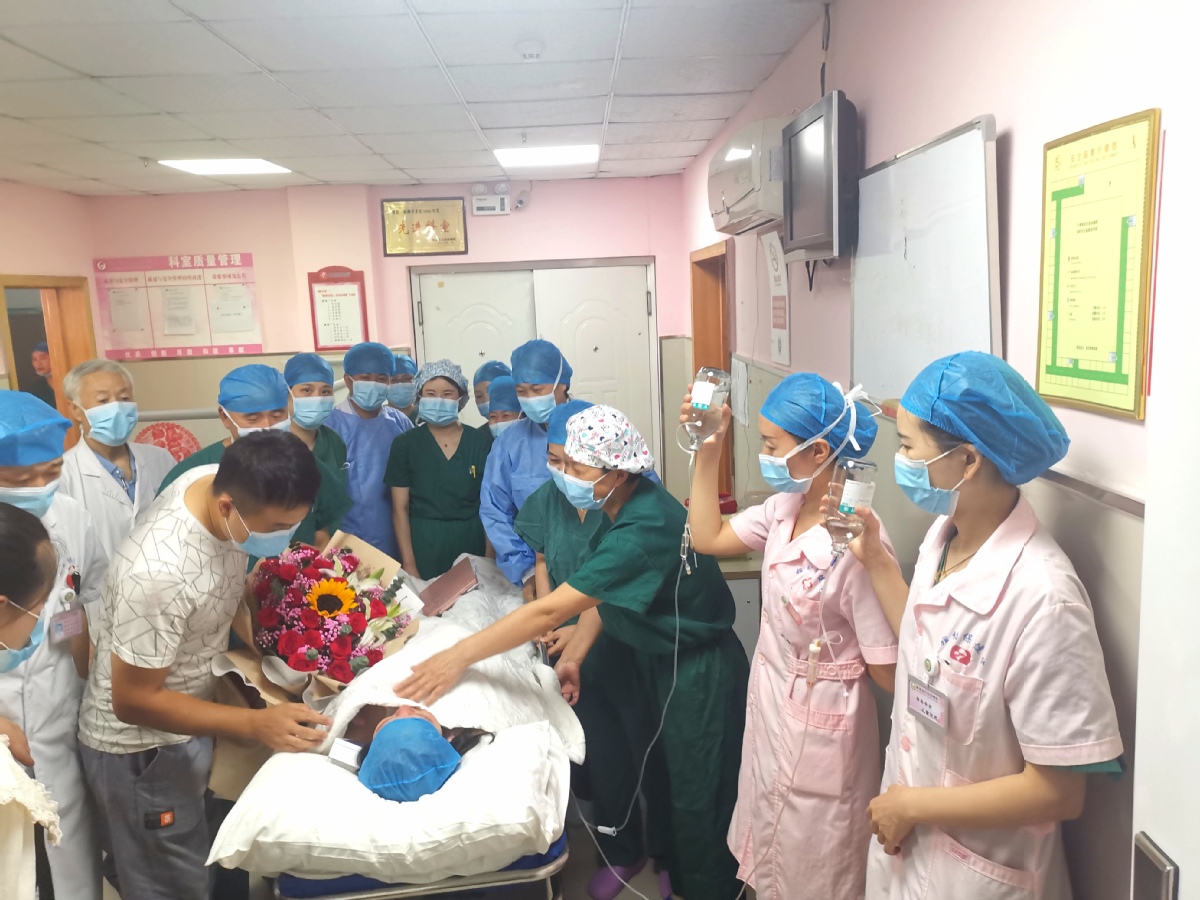Parents of Henan quadruplets could face fine for policy breach


The birth of rare all-male quadruplets into a Henan family that already had two girls has sparked discussion on whether the large family should be fined, given that the national third-child policy has not yet been implemented.
The quadruplets were born in Dancheng county in Zhoukou, Henan, on June 29. Their father included Fan, Rong, Chang and Sheng, four words that when combined mean prosperous, in their names.
They were the first quadruplets to be born in the county. Both the mother and the babies, weighing from 1.7 to 1.9 kilograms, are safe after the delivery by cesarean section.
Their father, Wang Yuxi, said doctors told him the probability of having all-male quadruplets was one in 3.52 million. He and his wife already have two daughters, one in primary school and the other only 1, and he wanted a boy on the third try.
"Actually, the family thought about an abortion when they learned the wife was carrying quadruplets. They are not wealthy, plus cesarean delivery can be dangerous for the mother," said Kang Guoliang, director of Dancheng Women and Children's Hospital.
Since the prenatal indicators were normal, the couple decided to keep the babies.
But along with the happiness of welcoming four sons into the family, Wang faces the possibility of being fined for their birth.
On May 31, China announced the third-child policy, allowing all couples to have up to three children, to cope with the problem of an aging society. It replaced the universal second-child policy, which was released in 2016.
Although the central government has released the third-child policy, the Dacheng county health department has not yet received the relevant policy document, meaning the second-child policy is still in place in the county, a department staff member surnamed Fan told Beijing News. "We are considering consulting with the Henan Provincial Health Commission on Wang's case," he added.
Wang Guangzhou, a researcher with the Institute of Population and Labor Economics at the Chinese Academy of Social Science, said that although the details of the third-child policy have not been officially implemented, theoretically speaking, it's not proper to follow the old second-child policy in local practice.
Considering the family's practical difficulties, along with the babies' growth, Mu Guangzong, a demographer at Peking University, suggested comprehensive government support was needed.
"Having quadruplets is a small-probability incident, giving birth and raising the children needs the involvement of both the household and the government," Mu said.
- Diplomats, business leaders in Hong Kong explore Xinjiang's beauty, eye collaboration
- Global study shows intensifying drought may wreck grasslands
- State councilor urges efforts to promote women's cause
- Intl experts highlight China's anti-corruption efforts relevant to modern governance
- Revolutionary Chinese chip to pioneer search for dark matter, black holes
- Cargo plane skids into sea after landing in Hong Kong, 2 dies




































